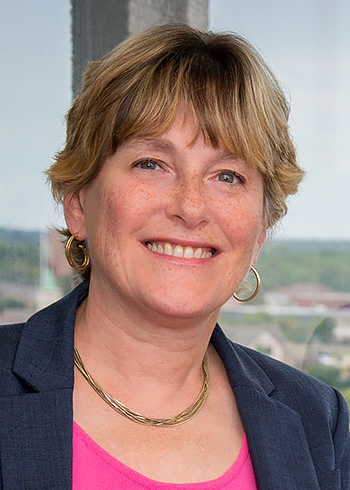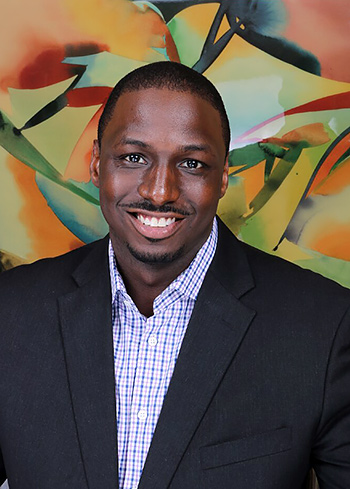Two food science alumni elected to leadership positions
Their jobs seem a world apart: one keeps astronauts healthy in space; the other perfects the flavors of foods found in the neighborhood grocery store.

Michele Perchonok, Ph.D. '83. Photo: provided.
But more than just a Cornell food science pedigree connects Michele Perchonok, Ph.D. '83, and Bryson Bolton, M.S. '09. Both recently have been elected to leadership positions in the Institute of Food Technologists (IFT), the society of professional and academic food scientists.
Perchonok will serve a three-year term as president of the IFT, and Bolton will join its board of directors. Their terms start Sept. 1.
Perchonok's day job is managing NASA's Human Research Program Science Management Office. She was involved in the groundbreaking "Twins Study" in which astronaut Scott Kelly spent a year aboard the International Space Station while his identical twin brother, Mark Kelly, remained on Earth.
At NASA, she is part of the management team for all research conducted on humans that will enable people to go on longer space exploration missions, "with the ultimate goal being Mars," she says.
"This research involves behavior, bone, muscle loss [and] radiation exposure as well as food science," Perchonok says. "It's a risk-based program. We look at how we can make the best decisions in a constrained environment, including small subject-number statistics and constrained budgets. How are you going to make sure people stay healthy and perform well in a three-year mission? How do you decide what's good enough?"
Perchonok credits Cornell with helping her develop the ability to think critically.
"A lot of the professors, especially in the upper-level courses, were really not asking us to regurgitate facts and information. It was more, 'Now that you have the information, how would you go about solving these problems?' she says.

Bryson Bolton, M.S. '09. Photo: provided.
Bolton's connection to IFT started early: He earned a $1,000 scholarship from the society as a freshman at Alabama A&M University. Soon thereafter, he was chosen to participate in a 2003 Summer Scholars Program at Cornell. That summer, Bolton worked with Harry Lawless, now professor emeritus, studying metallic taste and smell.
Later, as a master's degree student at Cornell, he worked with Bruce Halpern, now professor emeritus. Bolton said he appreciated the intellectual freedom he found in the food science program, where he was encouraged to follow his own interests and develop his own research questions.
"The people I met at Cornell were very genuine, and they all saw something in me: that I was passionate about what I wanted to do, and they were willing to help me along the path," Bolton says. "The things I learned in my graduate program – designing studies, understanding how to approach research questions – those things have really stayed with me. I use them every day."
Bolton's full-time job is managing sensory and consumer research for Product Dynamics. He helps many Fortune 500 food and beverage companies develop new products, test them with consumers and analyze consumer response data.
"I really don't like cooking at all," Bolton admits. "My passion for food came from studying someone's reaction to food. I give you something and I want to see your reaction to it. I'm also a taster. I think of being a really good taster as being like a really good musician. If you're a trained musician, and you hear a symphony, you can pick up on the cello, the trombone, the drums, and you can get a good sense of who's off, who's flat. If you're a trained taster, you can pick up on the strawberry flavor, the chocolate flavor, the salt, and you can tell which ingredients need to be modified."
IFT is a nonprofit scientific society with more than 17,000 members in 95 countries. It works to support scientists in academia, government and industry who are working toward "a safe, nutritious and sustainable food supply for everyone."
More information on the election and profiles of both Perchonok and Bolton are available on the IFT site.
Krisy Gashler is a freelance writer for the College of Agriculture and Life Sciences.